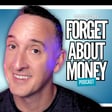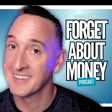
📚 Top 10 Gen Z Money Tips with Professor Brett Killion 💸
Watch this Episode and Subscribe on YouTube
🤑David Baughier chats with Brett Killian, an associate professor at Lakeland University, to discuss essential money lessons for Gen Z. 💸📚
Brett shares his expertise in personal finance, drawing from over a decade of experience teaching college students. 🎓
Discover practical strategies for minimizing student debt, building wealth, and making informed financial decisions that set you up for a successful future. 💡💼
🔑 Key Topics Discussed:
⇨ Brett Killian's top money lessons for Gen Z
⇨ Habits and investing strategies of millionaires
⇨ Practical ways to minimize student debt, including college hacking and gap years
⇨ Importance of "Pay Yourself First" strategy and automation in saving
⇨ Efficiency in managing the "Big Three" expenses: housing, transportation, and food
⇨ Clarifying the differences between saving and investing
⇨ Understanding and building credit scores responsibly
⇨ Basics of insurance and the importance of term life insurance over whole life insurance
🕒 Timestamps/Chapters:
0:00 - 📘 Introduction to Money Lessons for Gen Z
5:03 - 💼 Millionaire Habits
10:12 - 🎓 College Debt Hacks
20:45 - 💸 Pay Yourself First
25:52 - 🏠🚗🍴 Budgeting: The Big 3
34:09 - 💰 Savings vs. Investing
38:35 - 📈 Simple Investing Tips
44:45 - 📊 Credit Scores Explained
56:26 - 🛡️ Insurance Basics
59:55 - 🏡 Homebuying Tips
1:01:17 - 📖 Personal Stories and Financial Decisions
1:14:09 - 🎓 Impact of Financial Education on Young People
1:14:21 - 📋 Summary of Financial Topics Covered
🔗 Brett's Links:
📚 NextGen Financial Freedom Blog: https://nextgenfinancialfreedom.com
🔗 David's Links:
💰 Free Money Course: https://www.fiology.com/free-money-course/
🍏 Forget About Money on Apple Podcast: https://podcasts.apple.com/us/podcast/forget-about-money/id1730601757
🎧 Forget About Money on Spotify: https://open.spotify.com/show/5BQTKUPL6IHtXCEJTY9jYo
📝 Episode Highlights:
💡 Brett's essential money lessons tailored for Gen Z
📈 Insights into the habits and investing strategies of millionaires
💸 Practical tips on minimizing student debt through college hacking and gap years
🏡 Strategies for managing the "Big Three" expenses: housing, transportation, and food
💰 Understanding the "Pay Yourself First" strategy and the importance of automation in saving
🔍 Clarification of the differences between saving and investing
📊 Building and maintaining credit scores responsibly
📜 Basics of insurance and the importance of choosing term life insurance over whole life insurance
#️⃣ Hashtags:
#GenZMoney #BrettKillian #MoneyLessons #FinancialLiteracy #StudentDebt #InvestingTips #PersonalFinance #CollegeHacking #PayYourselfFirst #FrugalLiving #CreditScores #InsuranceBasics #TermLifeInsurance #FinancialEducation #SmartInvesting

